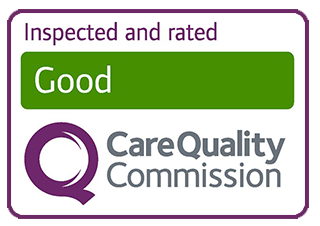We know that finding the right care and support for your needs can be tricky, especially when you want to maintain your independence. That’s why our supported living options are designed around what’s important to you.
Supported living offers an alternative to residential care and empowers you to choose the right amount of support – how and when you need it – so you can lead an enriching and fulfilling life.
Our supported living is based on positive outcomes and expertise of developing environments that focus on promoting and encouraging the people we support’s independence and functioning.
Proving our services to West Sussex County Council
The type of support you receive is controlled by you and with our staff, you will develop a personalised support plan based on your interests, priorities and skills. From help with personal care needs and managing finances, to finding education, work or leisure activities – you decide!
This can be in a variety of settings dependent on your needs, circumstances and goals but they could include any of the following:
We have partnered with a local housing provider (social landlord) who outsources properties used as supported accomodation. The service users have tenancy agreements and pay rent to the social landlord who is also responsible for maintenance and some support functions. We use REACH Standards for supported living to ensure that the service users are empowered to be more independent and have the best possible outcomes.
SERVICE MODEL
Our model service specifications are aimed at supporting health and social care commissioners to develop locally specific service specifications which support implementation of the national service model. They build on the service model by providing additional detail for commissioners about the purpose, functions and intended outcomes of three aspects of the service model. These are:
- Enhanced/Intensive Support (principle 7 of the service model)
- Community-based Forensic Support (principle 8 of the service model)
- Acute Learning Disability Inpatient Services (principle 9 of the service model)
These three aspects of the service model describe specialist health and social care provision aimed specifically at supporting people with a learning disability and/or autism who display behaviour that challenges. However, mainstream health and social care services can and should meet a large proportion of people’s everyday needs.
The following key principles (as described in the national service model) therefore apply to all three aspects of our provision described in this document:
- The starting point should always be for mainstream services to support people with a learning disability and/or autism, making reasonable adjustments where necessary and with access to specialist multi-disciplinary support as appropriate;
- A core element of any such specialist provision should therefore be on enabling mainstream services, and other partners, to support people directly. Where meeting health and care needs are particularly complex, more intensive specialist multidisciplinary support may be needed in order to ensure equity of outcome for people;
- The onus is on us to put forward a compelling rationale for any proposal to deviate from the principle of supporting access to mainstream provision, whether community or hospital based services.
Three advisory groups were established to support development of the three model service specifications.
“Children, young people and adults with a learning disability and/or autism who display behaviour that challenges, including those with a mental health condition have the right to the same opportunities as anyone else to live satisfying and valued lives and, to be treated with the same dignity and respect. They should have a home within their community, be able to develop and maintain relationships and get the support they need to live a healthy, safe and fulfilling life.” Vision statement, national service model 2015.
As set out in the service model, the underpinning approach to transformation must be based on a whole system approach to delivering high quality support and services for people. For this to be a reality, services need to demonstrate a strong commitment to a shared value base which place individuals and their quality of life at the centre everything they do.
This value base should reflect the ‘golden threads’ of the service model and be evident on the basis of capable environments within which care and support is delivered. Capable environments are characterised by:
- Positive social interactions,
- Support for meaningful activity,
- Opportunities for choice,
- Encouragement of greater independence,
- Support to establish and maintain relationships and
- Mindful and skilled family/carers and paid support/care staff


